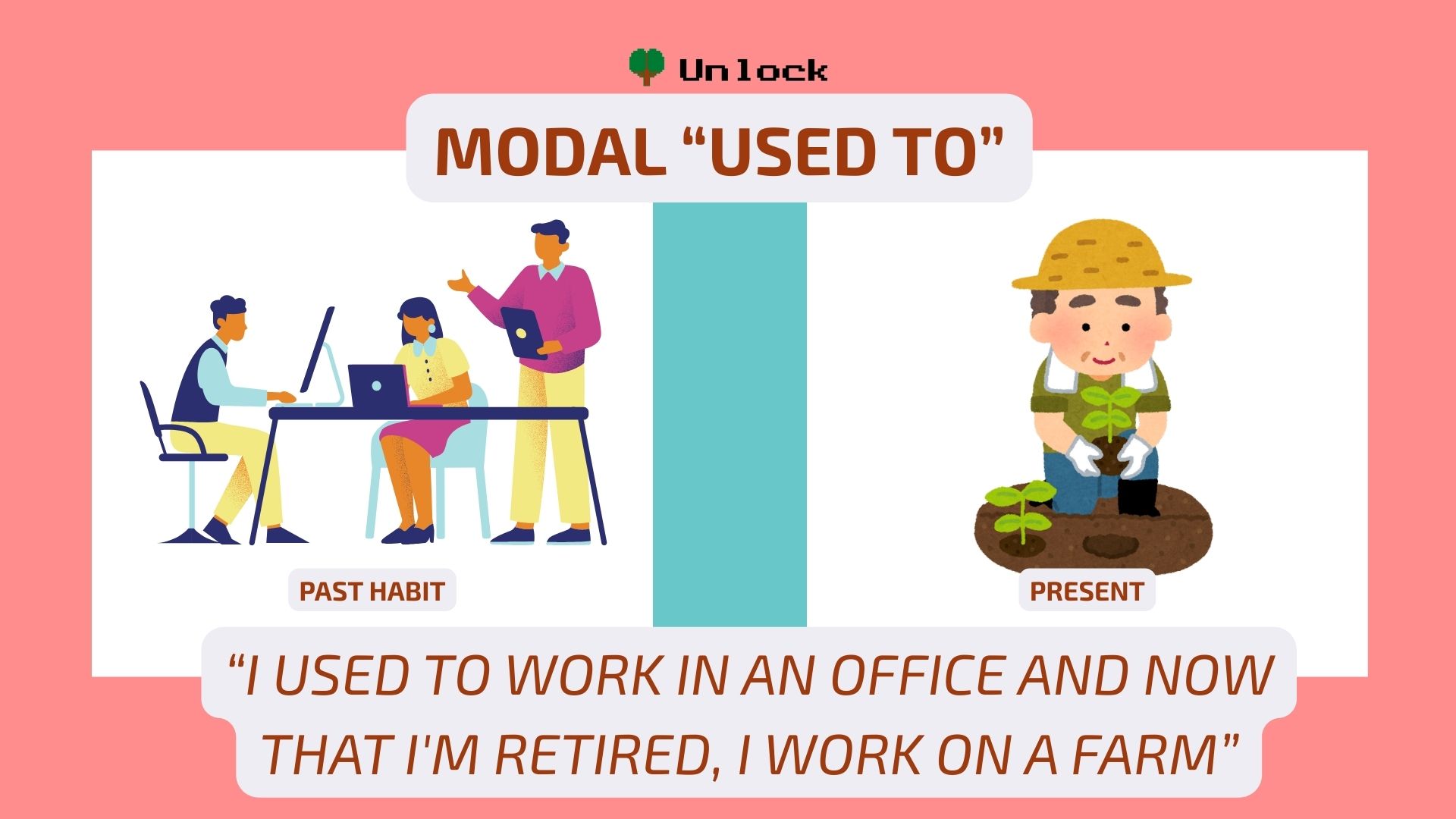
Modal Verbs - Learn how to use "Used to" with examples
Today we are going to explore a specific modal verb, which will help us describe our past habits:
"Used to" refers to a past action, state, or habit that is no longer true in the present. It can describe past habits, such as "I used to play piano," or past states, like "She used to have a house". The structure is always "used to + infinitive verb," and in the negative and question forms, only "use to" is used with the auxiliary verb "did".
Examples of Past Habits
- "When I was a child, I used to play outside every day". (I don't play outside every day now)
- "She used to smoke, but she quit last year". (She doesn't smoke now)
- "We used to go to the beach every summer when I was a kid". (We don't go to the beach every summer now)
Examples of Past States
- "I used to live in a small town, but now I live in the city". (I don't live in a small town anymore)
- "There used to be a bookstore here". (There is no bookstore here now)
- "She used to be very shy, but now she's the life of the party". (She is not shy now)
Negative and Question Forms
- Negative:
Use "didn't use to".
- "I didn't use to like action films, but I love them now".
- "There didn't use to be a supermarket there".
- Question:
Use "Did you use to".
- "Did you use to go swimming when you were at school?".
- "Did you use to work with Kevin Harris?".
Important Note
- Do not confuse "used to" with "be/get used to + -ing," which means to be accustomed to something. For example, "I am used to getting up early" means I am accustomed to the routine now, not that it was a past habit.
.png)



.jpg)


